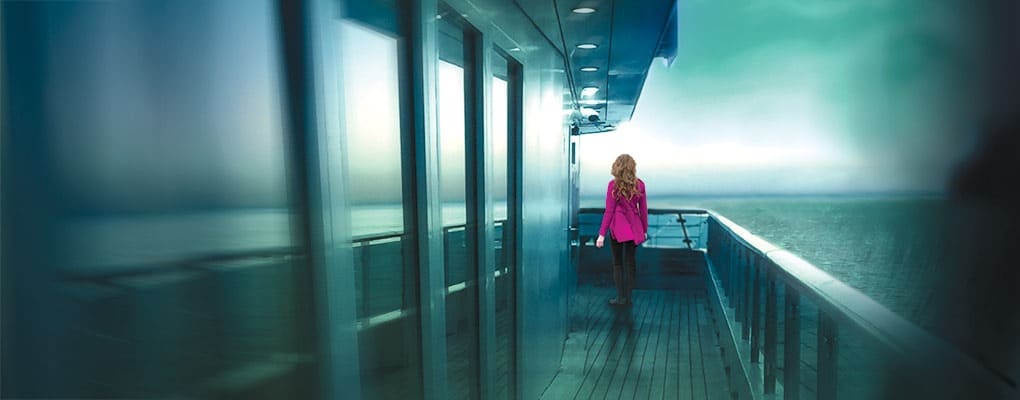Books
Drowning in mystery: Ruth Ware on The Woman in Cabin 10
I’ve always had a fascination with boats and the sea. One of my earliest memories – I’m still not completely certain if it’s a real memory, or a sort of composite of truth and nightmare – is of my little sister almost slipping between the railings of a cross channel ferry. It wasn’t over the side, as there was a deck below, but I have a vivid recollection of her scared little toddler face as the ship lurched, and the terrifyingly wide gap between the rusting bars, and of my dad rushing across and snatching her up.
Our holidays as children always started with a boat journey – usually the Portsmouth to St Malo ferry, which is an overnight crossing. My grandparents usually paid the extra for a cabin with a window, but my parents were young and hard up, and generally hired a four person berth below the waterline, which meant not only no window, but also the unsettling sensation of being beneath the surface of the sea, and knowing that the dark cloudy waters of the channel were only inches away behind the hull of the ship. That deep, the motion of the boat felt different, and the engine thrum was louder and more pervasive. The air smelled of petrol and diesel fumes from the car deck, and I liked to lie in my little bunk and imagine the engine rooms just a deck or two below, their rusted iron pipes and oil-stained floor so different from the plastic and chrome of the passenger decks.
Perhaps it’s not surprising that a lot of this atmosphere found its way into my second crime novel, The Woman in Cabin 10, which is set not on a cross channel ferry, but on a cruise ship.
I first started to think about setting a mystery on a cruise when I read a series of newspaper pieces about the odd legal grey area surrounding boats in international waters. Boats in harbour or close in at shore have a clear cut legal status, where crimes on board are governed by the law of the country they are in. But international waters are a sort of legal no-man’s land, and crimes committed in that zone are governed not by the legal jurisdiction of the victim, or the perpetrator, or the destination of the boat, but by the country it’s registered in. Since many cruise companies are registered in odd, out of the way locations like Panama or the Caribbean, you can have a situation where a French woman is murdered en route from Hull to Netherlands, and the main suspect is a Briton, but the police investigation is conducted out of the Bahamas. It can take many days or even weeks for the police to arrive at crime scene, while in the mean time securing the location and investigating the crime is left up to on board security personnel, employees of the cruise ship company.
Of course the story that I ended up writing is a lot twistier than a simple legal quirk, and the atmosphere of the boutique luxury cruise is very different from the cross channel ferries of my childhood. But I think that the seeds of the book were sown on those early family holidays as I lay awake in my bunk, listening to my dad snoring, and feeling the thrilling sensation of the dark water pressing in, all around.
Read an extract from The Woman in Cabin 10 here.
Take a look at all Ruth Ware books in order of publication here.



Please note: Moderation is enabled and may delay your comment being posted. There is no need to resubmit your comment. By posting a comment you are agreeing to the website Terms of Use.